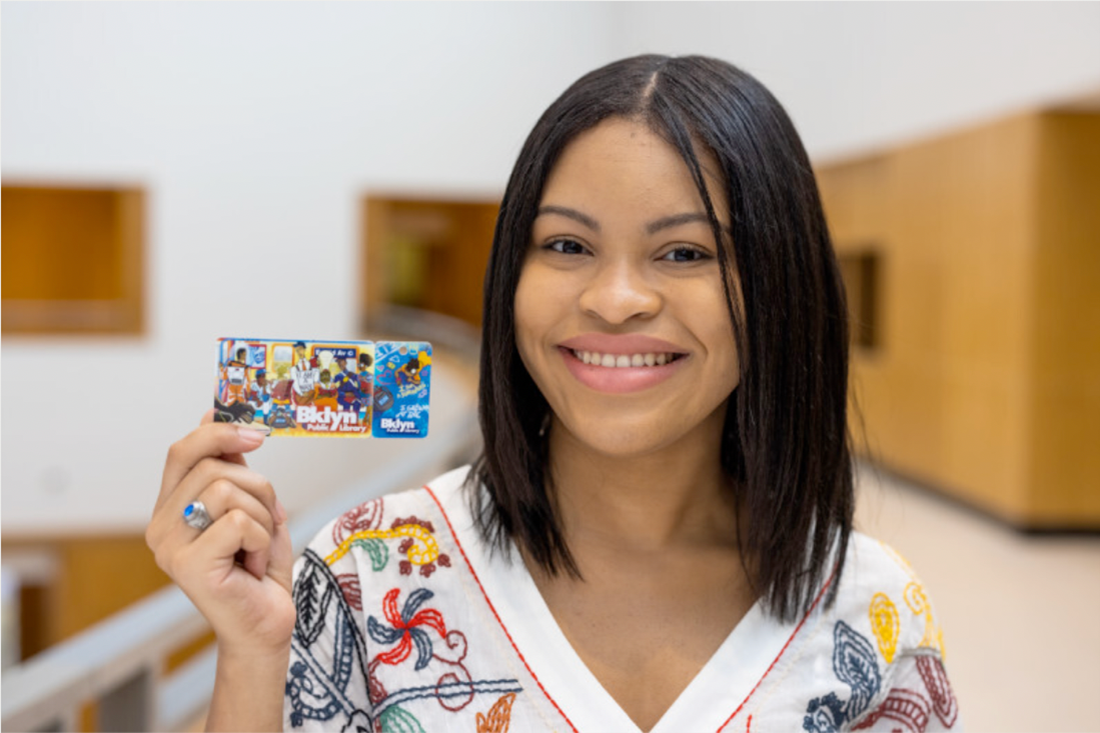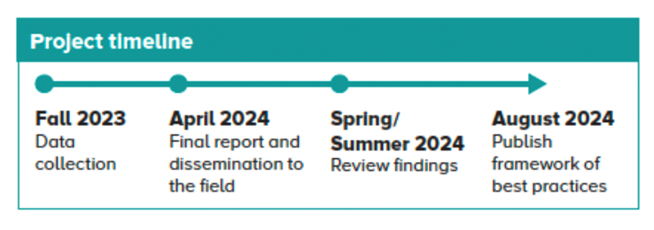Cardholder Signup: Collecting and Analyzing How Patrons Get Library Cards

In May 2023, with funding from the Mellon Foundation, Brooklyn Public Library (BPL) launched an 18-month research project to collect and study cardholder signup policies from public libraries across the nation. The project aims to identify the range of policies and procedures which govern cardholder access as well as the rationale used for establishing (or protecting) those policies. Findings will be shared with the field in a report issued in spring 2024. Now published: Library Card Study.
Using the findings, BPL will convene a representative working group of public library leaders and legal experts in the spring/summer of 2024 to develop a framework of guiding principles and best practices for cardholder registration. The hope is that we may begin to shift our standard signup policies to meet the practical realities of those in our communities who have a range of situations and are not any less trustworthy or deserving of access.

Data Collection
The data collection work is nearly complete, with more than 1,600 public library systems to date responding to an online survey developed by BPL and research partner Avenue M Group (the survey is now closed). Anyone who works or has recently worked in a US public library with some knowledge of their cardholder signup process was encouraged to respond. BPL is partnering with the Public Library Association (PLA), the Association for Rural and Small Libraries (ARSL), the Urban Libraries Council (ULC), the Chief Officers of State Library Agencies (COSLA), and OCLC's WebJunction to share information about the project and encouraged as many public libraries as possible to participate. We hope YOUR library is represented!
In addition to collecting what's done in practice, BPL’s research aims to collect the justifications for these policies (whether known or unknown), how (and how often) the cardholder signup process is revisited or revised, and the methods used to train staff and communicate with new patrons. Quantitative data has been collected via several focus groups this fall: BPL hosted an in-person focus group at the ARSL conference in September, and another at the ULC Annual Forum in October. A third online, asynchronous focus group took place in mid-November.
Early data suggests several key policy areas in which public libraries can create more equitable access for potential new cardholders:
- Eligibility: who is eligible to get a card in the library’s service area (full-time residents vs. temporary residents, students, workers, etc.) and how is that eligibility determined during cardholder signup? How does the library welcome those without traditional ID, and/or in a variety of living situations, like those in transitional, rental, mobile, or rural housing?
- Legal name: how does the library accommodate those who use a different name from that issued on legal documentation, such as transgender patrons, those who have a preferred name or nickname, or those who may follow other cultural naming practices that deviate from how the ILS typically stores first and last name?
- Virtual signup: other than standard efforts at outreach, does the library provide an alternative signup option for those who can’t or don’t want to physically visit the library to receive or renew their library card? Do patrons have access to a reasonably sized and diverse digital collection?
- Youth signup: what are the terms for minors under the age of 18 to receive or renew a library card? Why has the library set the terms in this way?
Further considerations include reaching those who speak a language other than English, any other required information collected during signup (driver's license number, community references, gender, email address), and how proactive the library is at sharing signup and lending policies with patrons.
Further Research

The raw data collected from this research, the first known dataset of cardholder signup practices nationwide, will be made available by Brooklyn Public Library in 2024. Professional organizations like the Institute for Museum and Library Services (IMLS), PLA, ULC, ARSL, and State Library Agencies may wish to do further analysis and reporting on the range and justification of cardholder signup policies.
More research will be needed to understand the social justice implications of overly restrictive library card signup policies and avail risk-adverse decision-makers of their hesitation to open up access even at the real or perceived risk of strained budgets or materials loss. (There are similarities to the “fine-free” movement, which allowed public libraries to feel more comfortable taking this step once we understood how the collective community benefits outweighed the risks.) The overall goal with this work is to provide the incentive and tools for public library staff, leaders, boards, and community stakeholders to have informed and productive conversations about cardholder access policies that reflect the common good and better align with the library profession’s stated values.
Library Card Study
The Library Card Study research report and data are now available. Please view the recording of the WebJunction webinar, Cardholder signup policies: Access in practice, to learn more about this important research.
If you have any questions, you can contact Amy Mikel, Director of Customer Experience and research project lead at Brooklyn Public Library, at [email protected].
Further Reading
Hurwitz, Leigh. “I help thousands of teens impacted by book bans. Here’s what they had to say.” VICE Magazine, 20 Jan. 2023. https://www.vice.com/en/article/88qp3b/i-helped-thousands-of-teens-impacted-by-book-bans-heres-what-they-had-to-say
Blackwell, Michael and Mikel, Amy. “Books Unbanned: expanding access to content via library eBooks.” Information Today, 22 May 2024.
Webinar recording
Learn about key findings and takeaways from this national research on cardholder signup policies from public libraries across the country.
